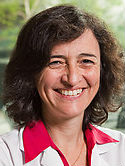Senior adult oncology, version 2.2014 Journal Article
| Authors: | Hurria, A.; Wildes, T.; Blair, S. L.; Browner, I. S.; Cohen, H. J.; De Shazo, M.; Dotan, E.; Edil, B. H.; Extermann, M.; Ganti, A. K. P.; Holmes, H. M.; Jagsi, R.; Karlekar, M. B.; Keating, N. L.; Korc-Grodzicki, B.; McKoy, J. M.; Medeiros, B. C.; Mrozek, E.; O'Connor, T.; Rugo, H. S.; Rupper, R. W.; Silliman, R. A.; Stirewalt, D. L.; Tew, W. P.; Walter, L. C.; Weir, A. B.; Bergman, M. A.; Sundar, H. |
| Article Title: | Senior adult oncology, version 2.2014 |
| Abstract: | Cancer is the leading cause of death in older adults aged 60 to 79 years. The biology of certain cancers and responsiveness to therapy changes with the patient's age. Advanced age alone should not preclude the use of effective treatment that could improve quality of life or extend meaningful survival. The challenge of managing older patients with cancer is to assess whether the expected benefits of treatment are superior to the risk in a population with decreased life expectancy and decreased tolerance to stress. These guidelines provide an approach to decision-making in older cancer patients based on comprehensive geriatric assessment and also include diseasespecific issues related to age in the management of some cancer types in older adults. Copyright © 2014 by the National Comprehensive Cancer Network. |
| Keywords: | thalidomide; quality-of-life; randomized controlled-trial; cell lung-cancer; acute myeloid-leukemia; acute; lymphoblastic-leukemia; comprehensive geriatric assessment; elderly cancer-patients; inappropriate; medication use; risk myelodysplastic syndromes; prednisone plus |
| Journal Title: | Journal of the National Comprehensive Cancer Network |
| Volume: | 12 |
| Issue: | 1 |
| ISSN: | 1540-1405 |
| Publisher: | Harborside Press |
| Date Published: | 2014-01-01 |
| Start Page: | 82 |
| End Page: | 126 |
| Language: | English |
| PROVIDER: | scopus |
| PUBMED: | 24453295 |
| DOI/URL: | |
| Notes: | Export Date: 3 March 2014 -- Source: Scopus |




